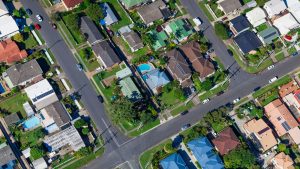A few years ago, when stuck in the middle of mid-day traffic, have you ever thought about a road that interacts with your car, and alerts you right away about risks ahead? Or maybe there would be a tool that can alter traffic lights to reduce congestion? This is not science fiction; it is the promise that ‘Smart Roads’ bring into your life. With back-to-back mega city expansions and growing traffic, traditional road networks end up becoming a total failure. They are no longer enough to stop delays, accidents, and environmental damage. This is when the smart roads enter the picture, using cutting-edge technology such as sensors, IoT devices, and communication technologies to develop intelligent transportation systems.
In this article, we find the answers to the question ‘What are the benefits of smart roads?’.
What Are Smart Roads?
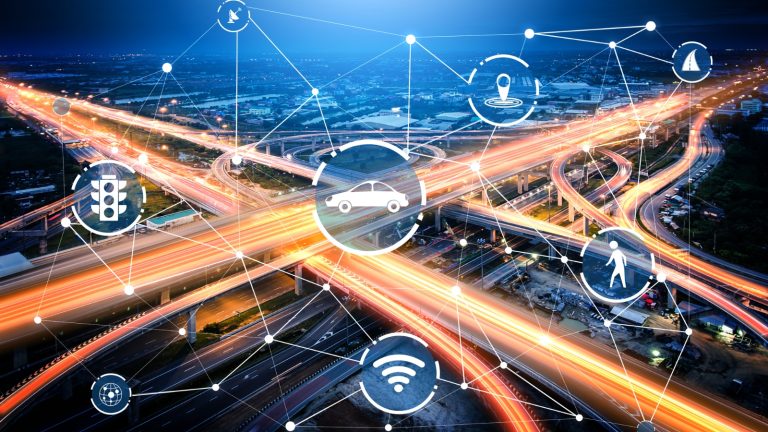
- Smart roads are a network of roads that are known to be intelligently interlinked and sophisticated transportation infrastructures furnished with cutting-edge technology. They carry the technological power to monitor, communicate, and adjust in real time based on transportation requirements.
- They come with a web of integrated sensors that can detect traffic, weather, and road conditions. These sensors are connected with powerful, high-resolution cameras and communication systems.
- Smart road networks are not that complicated to understand. The data gathered from these sensors flows down to vehicles on the roads and traffic management centres in parallel. This combination allows for real-time decision-making when it comes to improving travel safety and efficiency.
- Smart roads are highly integrated with linked and autonomous cars, and the main objective of them is to optimise traffic, decrease accidents, and promote sustainable transportation.
- As smart roads are increasingly becoming a trend that fights accidents successfully, they act as a powerful way of transforming ordinary roads into intelligent networks. These smart roads have the power to adapt dynamically to changing situations.
Key Benefits of Smart Roads
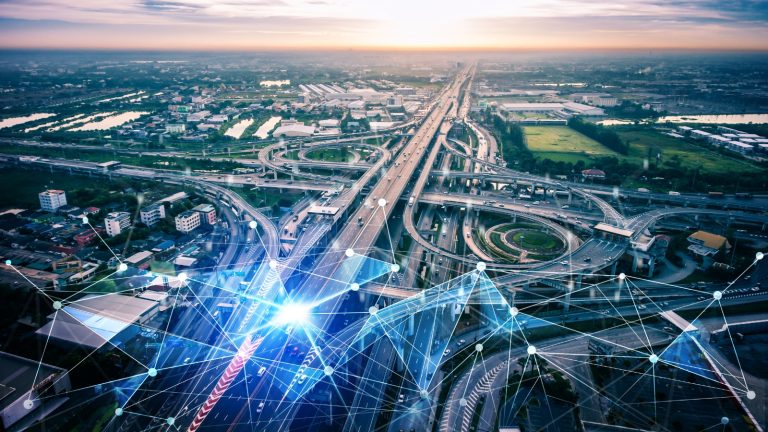
Enhanced Safety
In a world where traffic safety has become a number one concern of state governments and transportation authorities, smart road offers the best solution to increase the protection of roads, infrastructure and people as a benefit.
According to worldwide traffic statistics, there is no slowing down of accidents as thousands occur each day. The main causes are delayed danger identification, inadequate road visibility, or human error.
This is where the smart roads digital concept comes into the spotlight as the best possible arcade to mitigate these dangers with a high-end technological push.
They are equipped with real-time monitoring and early warning systems, and sensors have been placed on the pavement or roadside. This coverage is outstanding when it comes to detecting stalled cars, icy spots, or road debris and notifying approaching drivers or self-driving vehicles.
Furthermore, since it has embedded vehicle-to-infrastructure (V2I) communication protocols, which help vehicles get alerts about unexpected interruptions, lane closures, or traffic congestion ahead.
It is a fact that early test experiments have shown that such devices can prevent accidents by up to 20%. It will potentially save lives and cut emergency response costs. We see the boom of driverless vehicles coming up, and smart roads undoubtedly play a vital role in safety assurance.
Improved Traffic Flow and Operational Efficiency
What are the consequences of traffic congestion? No need to say the latter costs billions of dollars when concerning of lost productivity and wasted fuel. Smart roads are specifically developed with an outstanding purpose to address this issue with adaptive traffic management technology.
This concept obtains the power to monitor real-time vehicle data, and the roadways can automatically alter traffic signals. They will also regulate lane utilisation and optimise routes to zero traffic congestion.
For example, imagine sensors identify a traffic bottleneck in one lane. This is when the signals can prioritise other routes and provide real-time routing changes to connected vehicles.
Also, there is another digital innovation known as platooning, which is a method in which linked vehicles drive at synchronised speeds. This comes as an embedded digital capability of smart roadways.
It is not a secret anymore that these tools can cut off travel time significantly and increase delivery efficiency for logistics organisations, while improving traffic flow. The outcome is obvious in this case. It decreases idle, fuel consumption, and vehicle wear, which ultimately offers benefits for both travellers and road authorities.
Environmental and Sustainability Benefits
The primary focus of designing smart roads is not its convenience. More importantly, they also offer a great pathway to decrease environmental impact, which has become a major concern in road development and maintenance.
For example, traditional traffic congestion can result in wasteful fuel usage and hazardous emissions. However, smart roads act as an alley to considerably cut greenhouse gas emissions with their potential to improve traffic flow and reduce stop-and-go driving.
What are those innovative solutions that improve transportation sustainability? Solar road panels, energy-harvesting sensors, and self-healing pavement materials are among the commonly used approaches in the world in recent years.
Did you know that some smart highways even have electric car charging capabilities? Plus, some of the smart roads offer facilities to connect to renewable energy networks, which eventually minimises dependency on fossil fuels.
Economic and Cost Savings Benefits
Even though there are a plethora of benefits, many city governments and countries opt for smart roads mainly due to their financial benefits across numerous sectors. With such advanced technology in place, governments can easily save money on maintenance by using predictive monitoring.
This way, they do not have to spend millions of dollars to detect wear and damage and are able to foresee the issues before they become severe. It is a proactive strategy, and that indeed increases the lifespan of road infrastructure as it comes with the ability to reduce the expense of emergency repairs.
Many businesses, notably logistics and transportation industries, tend to gain a lot from optimised routes and lower fuel usage. Not to mention that smart roads pave the way for delivery times.
On the other hand, regular travellers can receive the benefits with reduced time spent in traffic and increased productivity. If the truth is told, they only have to spend less money on vehicle expenses if they have smart roads.
Future Outlook of Smart Roads and Their Challenges
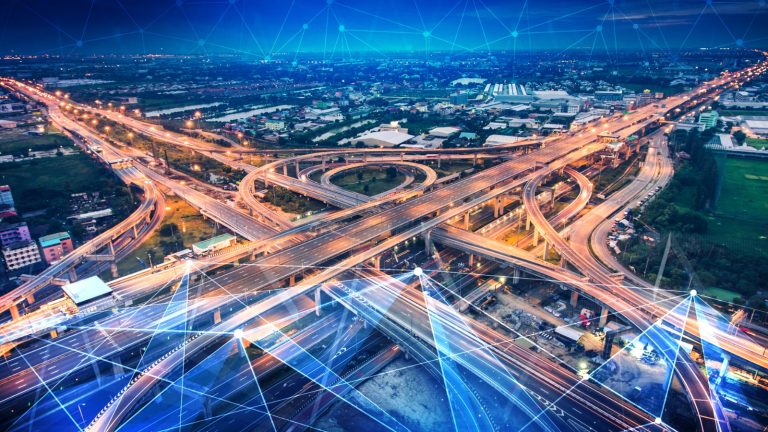
It is totally unnecessary to fear for the future of smart roads, as with the never-ending technology trends, it seems promising. Even today, we see concepts like as digital twin roads, improved 5G connection, and completely autonomous car integration are on the horizon, extending the potential advantages. The good news is that cities throughout the world are initiating some pilot programmes to extend smart road networks, and their main goal is to create a seamless, connected, and intelligent transportation environment.
However, there are some challenges arising with the development of the smart road concept. It seems to be nearly impossible to avoid high installation costs, cybersecurity threats, and data privacy concerns. Plus, interoperability between cars and infrastructure, as well as equal deployment in urban and rural regions, is needed for a successful adoption.
Yet, the best part is that there is some ray of hope as the transportation authorities can deal with these challenges using proper design and the use of developing technology as weapons.
Awakening the Highest Momentum of Smart Roads with the Right Partnership
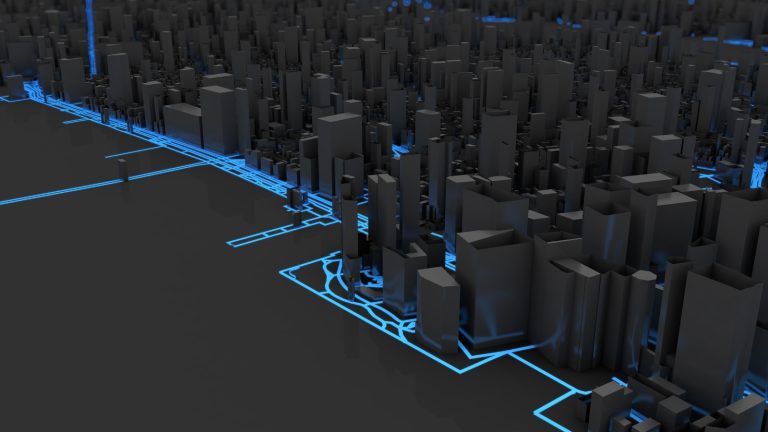
Smart roads are the next development in transport infrastructure. Will you agree? As cities develop and traffic congestion worsens. This is when the use of smart roads enters the limelight as the best method to avoid all transportation challenges. However, implementation of smart roads is not just enough to achieve the best outcome that the city governments and road authorities expect to acquire. The smart roads must reach their fullest potential, and that will be possible only through the right adoption of technologies. Tigernix Smart Transportation Asset Software is a powerful suite that is powered by Industry 4.0 capabilities such as AI, Predictive Analytics, IoT, Digital Twin, etc. Partnering with Tigernix Experts is the easiest and most cost-effective way to ensure the smart roads are functioning at full momentum.



